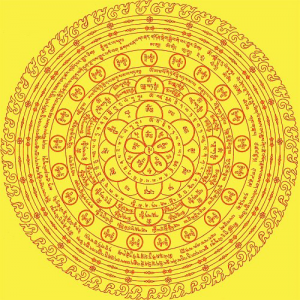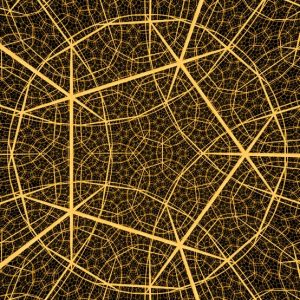Listening to Void: A Buddhist meditation

The non-dual experience of consciousness is the experience of void according to the Surangama Sutra, expounded by Avalokitesvara as a way to enlightenment by means of the organ of hearing.
It is an example of a unique method of mind control by turning one of the human senses inward:

First step: In this approach towards reality, the duality of object and space, or form and non-form, appears as sound and silence or stillness. The presence or absence of sound is registered here as is and is not, or existence and non-existence. But to regard this transient stillness as true stillness would be foolish since the stillness here still depends on sound, and is therefore relative.
Second Step: Awareness of place in this analogy would be comparable to the awareness of the faculty of hearing. Sound, when present, is by no means the beginning of this faculty, nor absence of sound its end. By clinging to merely a sequence of sound and non-sound (also form-not form) an advance of consciousness is not possible. Also this faculty of hearing does not exist by itself, but owes its being to the sequence of sound and non-sound. This shows its relativity.

Third step: By turning the faculty of the hearing inwards or, as expressed in the text of the Sutra, into the inward stream of meditation, so that hearing and its object (sound and non-sound) become detached, mind is perceived, because it is freed from external disturbance. But obviously the mind cannot be used to direct the faculty of hearing inwards in order to hear the inner self. It is already disturbed by the effort. Only by transcending the concept of both, the sequence of sound and non-sound, as well as the inward stream of meditation, can disturbance and stillness also become non-existent. This mind then becomes disentangled from all sense-organ disturbances. The void becomes apparent.

Fourth step: But the meditator is advised not to stop here. Only when he realizes that the (incomplete) awareness (subject) of the state of void, and the state of void (object) itself are non-existent, can the Absolute or True Wisdom be reached wherein all dualistic concepts of creation and annihilation, of birth and death, ignorance and enlightenment, cease to be. Herein (this absolute state) the meditant achieves simultaneous insight into the three aspects of the one mind: the unreal void (the phenomenal realm), the great void (the noumenal realm) and the mean (the absolute realm) the unites them.

Thus the advice is given, when one achieves contemplation of the unreal, one should not cling to it; when one achieves contemplation of the void, one should not cling to it. When one succeeds in keeping from both only then will the mind be really bright. This is called contemplation of the mean, or the one mind.




